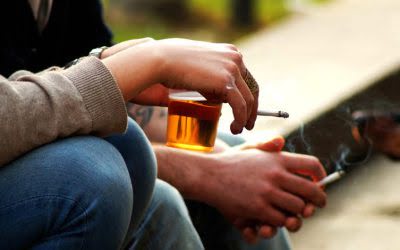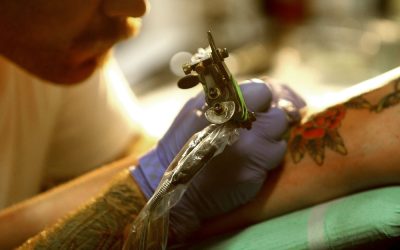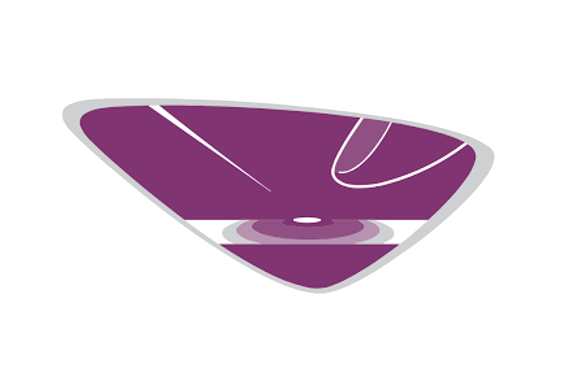A look into the ‘sober curious’ movement
The trick to navigating early recovery from addiction is to figure out what brings joy into your life and do it — you just have to stay sober. Just take the necessary precautions to ensure your sobriety — recovery doesn’t mean you can’t have fun anymore. Alcohol has been marketed to you as a way to become confident, charismatic, and cool. Advertisements always show people looking happy, celebrating with a group of friends, or living a high-end lifestyle while drinking premium vodka. I started spending more time with my friends individually over coffee rather than in group settings at the bar, and it made a huge difference in my life.

Focus on the positive aspects of socializing without alcohol, such as clear-mindedness, better sleep, improved health, and the ability to fully experience and remember moments with friends. Embracing sobriety can lead to a more authentic and fulfilling social life. Look for being sober around drinkers social events or activities that don’t revolve around alcohol. Attend concerts, art exhibitions, sporting events, or volunteer activities focusing on shared interests or experiences rather than drinking. Look for cultural festivals, fitness classes, or hobby-based groups.
Ways to Enjoy Being Sober When Everyone Else is Drinking
When you begin to view your negative thoughts and feelings as problems to be solved rather than the embodiment of who you actually are, you liberate yourself. But I didn’t know what to do with them besides feel them. And the more I felt them, the more intense and blinding they would get. If you have a willing friend or family member, take them along. So much of this list is not just about finding things to do, but treating the underlying causes of extreme boredom in sobriety.

Christmas really only covers 2ish days and time spent around drinkers is broken up. When you get together with such people, you’ll likely find that they do plenty of activities that don’t involve alcohol—like hiking, skiing, playing games, or fishing. And you might even find that you enjoy doing these types of things much more than activities that involve alcohol. Being sober doesn’t have to mean giving up your social life, yet managing sobriety in a social setting (especially when alcohol is involved) can be a bit of a challenge.
Practice Healthy Living
If you’re questioning the role alcohol plays in your life, you might be curious about what it’s like to lead a “sober life” without alcohol. “I hold a glass of soda and keep it refreshed, so no one else has to offer to get me a refill,” says Laura of Chicago, a recovering alcoholic who asked that her full name not be used. “And if it’s a ‘party hearty’ crowd, after a little bit, they won’t even notice if I quietly leave.” Socializing without alcohol can open up new possibilities for connection, fun, and personal growth. Embrace the opportunity to experience social interactions in a different light and create meaningful relationships that go beyond alcohol.
We’re hard-wired to seek similarities in others because it makes us feel heard, comfortable, and safe. It goes without saying that if you used to be — or currently are — a big drinker, then your friends likely are too. Nestled in a quiet waterfront corner of downtown Manhattan, TriBeCa is one of New York City’s most desirable neighborhoods. Avenues NYC sober livings are strategically positioned on quiet, less-traveled side streets, ensuring a peaceful and serene home environment that’s hard to find in the hustle and bustle of downtown Manhattan.
Navigating Social Life in Early Recovery
Although it’s difficult, it will be better in the long run to let go of relationships that will bring you back to a life of substance abuse and all the problems that come with it. Joining a support group is an excellent way to find sober friends. Alcoholics Anonymous, for example, has more than 2 million members in the United States, making it one of the most well-known groups for people recovering from addiction.
Psychologists say your drunk personality has a lot in common with your sober self – Quartz
Psychologists say your drunk personality has a lot in common with your sober self.
Posted: Fri, 02 Jun 2017 07:00:00 GMT [source]
It’s not just your drinking buddies and drug dealers who can get you into trouble—sometimes those who are closest to you can contribute to a relapse. The point of all this, don’t forget, is to enjoy the holidays. How those in recovery and those who care about them navigate this with at least some degree of comfort, is highly varied. This may require opening new lines of communication that brings you out of your comfort zone. Speaking to other families or friends who have gone through this is likely to yield many more strategies and ideas if you are struggling with what to do.
Family friend charged with capital murder in Audrii Cunningham case
Meanwhile, you’re at home wondering how many days it would take someone to find your body after you’ve choked on those peanut M&M’s you’ve been knocking back during your latest Netflix binge. Alcohol merely blurred my perception of social situations. When you remove alcohol from your life, you free up all the time you spent drinking and recovering from drinking.


